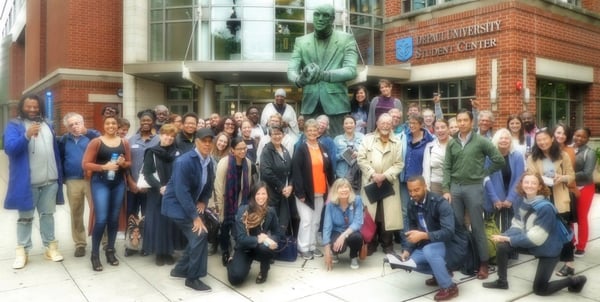Bill Dare explains – The network is taking on the complexity of the disjointed approaches to individual care and support to bring a “service user” driven foundation to community and neighborhood actions along with finding ways to align organizations and institutions.
I recently learned more about its efforts to strengthen social and health wellness after discussing with Dianne Urquhart of the Ottawa Social Planning Council https://www.spcottawa.on.ca/ and attending a community meeting, how: people are strengthening their own community, neighbourhood and work settings.

Individual practice – care and support can chip at at strengthening individual’s connections in multiple and various forms to their communities. How to embed, prioritize this approach in everyday practice beyond chipping, is not so easy as we negotiate layers of what is involved with Community Mental Health, Recovery practice but the formal framework and Community Development guidelines help.
Community Development Framework (CDF) brings together residents, community organizations, and city services in priority neighbourhoods across Ottawa. Together, we:
- Identify local community issues and strengths.
- Decide on the changes the community wants to make and set goals.
- Build on neighbourhood strengths, and develop skills and support to make the changes happen.
- Some goals require change at a level beyond the influence of the local community (for example traffic calming or access to affordable and nutritious food). An important aspect of the CDF approach is to support the “systems” level (i.e. community agencies and institutions) to address those concerns at a city-wide level.
Guiding Principles for
Community Development Practice
Coalition of Community Health and Resource Centres
Community Developers Network
February 2018
II. Guiding Principles for Community Development Practice
The importance of clarity regarding guiding principles became increasingly evident as this work
unfolded. The overall connection is the resulting impact on community change. This work is
grounded in over-arching principles of social change and requires foundational supports to provide
the infrastructure capacity for CD practice.
The framework below highlights four core principles that define the work of CD.
Challenging Systemic Inequity & Power Dynamics & Supporting Empowerment
Responsive to Community
Transformational Practice
Partnership & Collaboration
These principles are strongly inter-related and as such are used in all CD activities. Depending on
the activity, one principle may have a greater focus, but the other principles are still considered
when planning the most appropriate approach.
The principles guideline for community developers can be found here: https://cdfcdc.ca/wp-content/uploads/2018/12/FINAL-Guiding-Principles-for-Comm-Dev-english-Nov-19.pdf
Learn more at the Community Development website: https://cdfcdc.ca/












